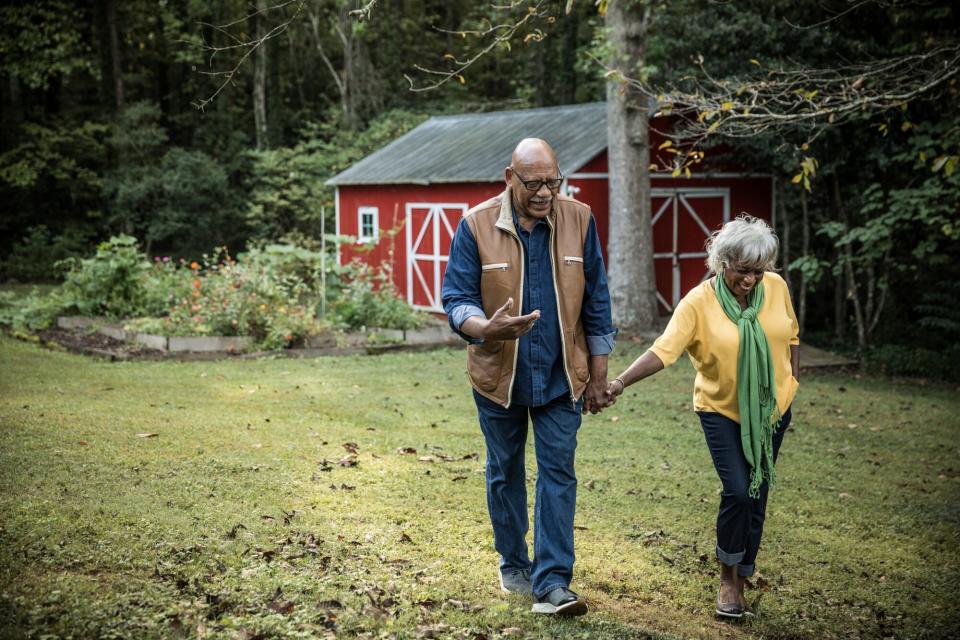Adding Three 40-Minute Walks to Your Weekly Routine Can Reduce Your Risk of Cognitive Decline
Just like our physical health changes over time, our mental health and sharpness also evolves. If you want to keep your mind strong as you age, there's something simple you can do: A new study published in ScienceDirect found that walking can be one the most helpful ways to increase white brain matter, which is what connects and supports our brain cells, The New York Times reports. What's more, while exercise can help white matter thrive, the study also showed the matter will actually shrink when people are inactive.
Previous studies have focused on gray matter in the brain, which includes neurons that form our thoughts and memories; the axons (or nerve fibers) connect neurons in our brain. As we age, these fibers get thinner and lead to cognitive decline. The researchers in the study explored how to improve the white matter in senior people: 250 men and women who lived sedentary lifestyles, but didn't have any other outlying health conditions.

MoMo Productions / Getty
Related: Science Says Drinking Tea Can Improve Brain Health
The study participants engaged in aerobic and cognitive activities, and the scientists measured their health and white matter from there with an MRI brain scan. They continued by divvying up the volunteers in groups that completed different physical activities three times a week: one group stretched and participated in balance training, the next group walked briskly for 40 minutes, and the last danced and learned choreography. After the six-month training, the researchers tested their health again.
The result? Almost all of their brains and bodies changed. Those who walked and danced improved their aerobic fitness and their white matter. The walkers actually had the biggest increase in the size of their nerve fibers and had the best memory tests. This proves that white matter is considered plastic and active with the ability to change the more you move. The dance team was the only group that didn't see a change in their health because they mainly watched the instructors to learn the choreography unlike the other two groups. Agnieszka Burzynska, a professor of neuroscience and human development at Colorado State University in Fort Collins, thinks the study results "are very promising" and offers "a strong case for getting up and moving" to improve brain health.

